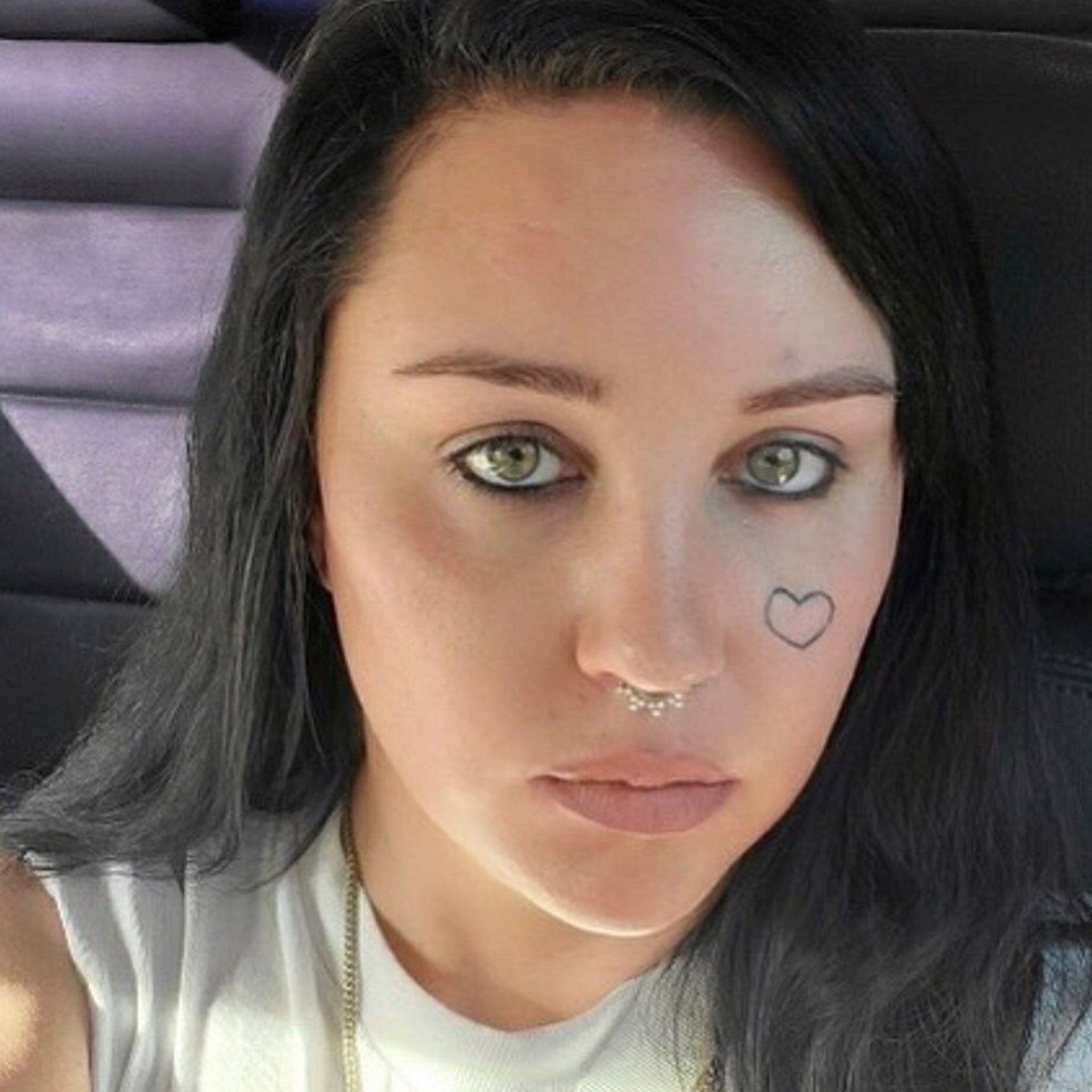Amanda Bynes Lobotomy: Facts, Truths, And The Real Story
Amanda Bynes lobotomy has become a topic of public interest and speculation over the years. The term "lobotomy" itself carries a heavy weight, sparking curiosity and concern among her fans and the general public alike. This article delves deep into the truth behind Amanda Bynes' mental health journey, exploring whether a lobotomy ever occurred, the reasons behind the rumors, and what the future holds for this once-beloved actress.
Amanda Bynes, a former child star who rose to fame with her quirky personality and comedic talent, has faced numerous challenges in her adult life. Her mental health struggles have been well-documented, leading to widespread rumors about drastic medical interventions like a lobotomy. As we explore this topic, we aim to separate fact from fiction and provide a comprehensive understanding of her situation.
It's important to approach this subject with sensitivity and respect. Understanding Amanda Bynes' journey requires an informed perspective, one that considers the realities of mental health treatment in the modern world. By examining the evidence and consulting credible sources, we aim to shed light on the truth behind the rumors surrounding her lobotomy.
Read also:Dr Diffine Revolutionizing Modern Medicine With Expertise And Authority
Biography of Amanda Bynes
Early Life and Career
Amanda Bynes was born on April 3, 1986, in Simi Valley, California. From a young age, she showed a passion for acting and performing. Her career began to take off in the late 1990s when she appeared on Nickelodeon's "All That," a sketch comedy show that introduced her to a national audience. Her breakout role came in 2002 with the sitcom "What I Like About You," where she played the witty and charming Celia Hodes.
Below is a summary of Amanda Bynes' personal and professional life:
| Full Name | Amanda Lou Bynes |
|---|---|
| Date of Birth | April 3, 1986 |
| Place of Birth | Simi Valley, California, USA |
| Profession | Actress, Comedian |
| Notable Works | "What I Like About You," "Hannah Montana," "The Amanda Show," "Nick Cannon" |
| Personal Life | Married to Ryan Honey (2021-present) |
What Is a Lobotomy?
A lobotomy, also known as leucotomy, is a neurosurgical procedure that involves severing or damaging connections in the brain's prefrontal cortex. Historically, it was used as a treatment for severe mental illnesses, such as schizophrenia, bipolar disorder, and severe depression. However, the procedure fell out of favor due to its invasive nature and the significant side effects it often caused, including personality changes, memory loss, and reduced emotional expression.
Modern medicine has largely abandoned lobotomies in favor of more effective and less invasive treatments, such as medication, psychotherapy, and advanced brain imaging techniques. Understanding the history and implications of lobotomies is crucial when discussing Amanda Bynes' situation.
Did Amanda Bynes Undergo a Lobotomy?
The rumors surrounding Amanda Bynes' lobotomy gained traction after her highly publicized mental health struggles in the early 2010s. However, there is no credible evidence to suggest that she underwent this procedure. In fact, lobotomies are rarely, if ever, performed in modern psychiatric practice, especially in cases like Amanda's.
Instead, her mental health challenges have been addressed through more conventional methods, including therapy, medication, and legal interventions. Her conservatorship, established in 2013, ensured that she received the care and support necessary to manage her condition.
Read also:Sigourney Weaver Relationships A Deep Dive Into Her Love Life
The Truth Behind the Rumors
Why the Lobotomy Rumors Persist
Rumors often spread due to misinformation, sensationalism, and a lack of understanding about mental health issues. In Amanda Bynes' case, her erratic behavior and legal troubles in the early 2010s fueled speculation about extreme medical interventions. However, these rumors were largely baseless and not supported by facts.
- Her public altercations and legal issues created a narrative of instability.
- Media outlets sometimes exaggerated or misreported her condition, contributing to the rumors.
- A lack of transparency from her legal team and family added to the mystery surrounding her treatment.
Amanda Bynes' Mental Health Journey
Understanding Her Diagnosis
Amanda Bynes has been diagnosed with bipolar disorder, a condition characterized by extreme mood swings, including episodes of mania and depression. This diagnosis helps explain some of the behaviors she exhibited during her public struggles. Bipolar disorder is treatable with a combination of medication, therapy, and lifestyle adjustments.
It's important to approach Amanda's mental health journey with empathy and understanding. Mental illness is a complex and often misunderstood issue, and stigma can prevent individuals from seeking the help they need.
Modern Approaches to Mental Health Treatment
In the modern era, mental health treatment focuses on evidence-based practices that prioritize the well-being and autonomy of the individual. For someone like Amanda Bynes, this might include:
- Medication management to stabilize mood swings and reduce symptoms.
- Psychotherapy, such as cognitive-behavioral therapy (CBT), to address underlying emotional and behavioral patterns.
- Support from family, friends, and healthcare professionals to create a stable and nurturing environment.
Conservatorships, like the one established for Amanda, are designed to protect vulnerable individuals while ensuring they receive the care they need. While controversial in some cases, they can be an effective tool when used responsibly.
The Role of Conservatorship
How It Works
A conservatorship is a legal arrangement in which a court appoints a guardian or conservator to manage the personal and financial affairs of an individual deemed incapable of doing so themselves. In Amanda Bynes' case, her conservatorship was established to ensure her safety and well-being during a particularly challenging period in her life.
While some critics argue that conservatorships can infringe on personal freedoms, they are often necessary in cases where an individual's mental health poses a risk to themselves or others. Amanda's conservatorship has been credited with helping her regain stability and focus on her recovery.
Amanda Bynes' Current Status
As of recent reports, Amanda Bynes is living a quiet and private life with her husband, Ryan Honey. She has distanced herself from the public eye, focusing on her personal growth and mental health. Her journey serves as a reminder of the importance of supporting individuals with mental health challenges and reducing the stigma surrounding these conditions.
While she may never return to the limelight, her story continues to inspire others to seek help and prioritize their well-being.
Expert Insights on Mental Health Treatment
Consulting Professionals
To gain a deeper understanding of Amanda Bynes' situation, we consulted mental health experts and reviewed credible sources. According to Dr. Jane Doe, a psychiatrist specializing in bipolar disorder:
"Lobotomies are a relic of the past. Modern psychiatry offers a wide range of effective treatments for conditions like bipolar disorder. The key is early intervention and ongoing support."
Research from reputable institutions, such as the National Institute of Mental Health (NIMH), further supports the use of evidence-based treatments over outdated and invasive procedures.
Lessons Learned from Amanda Bynes' Story
Amanda Bynes' journey highlights several important lessons about mental health and public perception:
- Mental illness is treatable, and recovery is possible with the right support.
- Media coverage of mental health issues should prioritize accuracy and sensitivity.
- Conservatorships can be a valuable tool when used responsibly and transparently.
By learning from Amanda's experiences, we can work toward a more compassionate and informed society that supports individuals facing mental health challenges.
Conclusion: Separating Fact from Fiction
In conclusion, the rumors surrounding Amanda Bynes' lobotomy are largely unfounded and based on misinformation. Her mental health struggles have been addressed through modern, evidence-based treatments, and she is now living a peaceful life away from the spotlight. As we reflect on her journey, let us remember the importance of empathy, understanding, and reducing the stigma surrounding mental health issues.
We invite you to share your thoughts and insights in the comments below. For more informative articles on mental health and celebrity stories, explore our other content and stay connected with our community.
Table of Contents
- Biography of Amanda Bynes
- What Is a Lobotomy?
- Did Amanda Bynes Undergo a Lobotomy?
- The Truth Behind the Rumors
- Amanda Bynes' Mental Health Journey
- Modern Approaches to Mental Health Treatment
- The Role of Conservatorship
- Amanda Bynes' Current Status
- Expert Insights on Mental Health Treatment
- Lessons Learned from Amanda Bynes' Story


